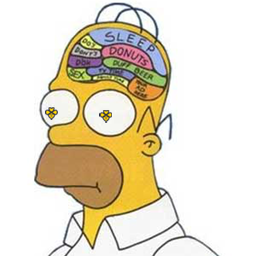
This is crossposted on Mark Forster’s Get Everything Done blog.
The big news in psychology this week is that Baumeister’s Ego Depletion model is bunk. At least it has failed to replicate.
I’m trying not to gloat too much but I’ve been pooh-poohing Ego Depletion for years. My take has been, based on the theory of hyperbolic discounting, that willpower is an illusion — a manifestation of the conflict between desires at different timescales. Which is why commitment devices, by changing your incentives, route around the problem entirely. Hooray Beeminder and friends! And hooray for economist Robert Strotz and psychologist George Ainslie who figured this all out between 1955 and 1975 or so.
Actually I really can’t gloat too much because I was far from the first to balk at Baumeister’s model. In fact, it wasn’t until Carol Dweck’s challenge that I publicly expressed my skepticism. Then Nick Winter wrote a book, The Motivation Hacker, the thesis of which is basically that willpower is an unlimited resource.
“With physical endurance you approach a physical limit asymptotically…”
More recently, Slate Star Codex reviewed Baumeister’s book, which is surprisingly light on Ego Depletion theory, other than to take it as a background fact. Slate Star Codex expressed skepticism, and even pointed out another replication failure for Ego Depletion from 2014, but did agree with the premise that mental willpower is depletable like physical willpower is. With the right inducement you may be able to eke out another mile of running or another hour of studying but in both cases the fatigue is real.
My counterargument is that with physical endurance you approach a physical limit asymptotically. The feeling that you can always eke out more with the right inducement is an illusion. Eventually one more straw will in fact break a camel’s back. With mental willpower it’s different. With the right inducement (say, continued employment) you can exert superhuman willpower, like waking up early and going to work every day for years or decades. Which is to say that with the right incentives, willpower doesn’t even need to be invoked. You can route around it and find creative ways to induce yourself to do what you really want to do.
“With the right inducement you can exert superhuman mental willpower.”
Since I’ve now segued elegantly back to Beeminder, the best way to use such a commitment device, at least initially, is not to probe the hard limits of willpower but to fix egregious instances of akrasia — to do a bit more than the bupkes you’d do if left to your own devices. You can then gradually dial up the steepness of your graph, but stop before feeling overwhelmed by stress and anxiety.
In other words, make a measurable improvement well below the point that the limits of willpower are even a question (if you don’t think of it as routing around willpower altogether). Some people — like the productivity-ueber-alles types who try polyphasic sleep and whatnot — thrive on adding stress and Beeminder can accommodate that. But using it in moderation can reduce stress and that depleted ego feeling, like by getting you to spread your studying out over a semester instead of cramming for exams, or by making you pay attention to your Fitbit just enough to get in 10k steps a day, or getting yourself to bed on time instead of staying up until 6am writing a blog post.
PS: Discussion of Ego Depletion’s current replication crisis, along with practical implications, is ongoing in the Beeminder forum.
UPDATE: Follow-up post, “What Is Willpower?”